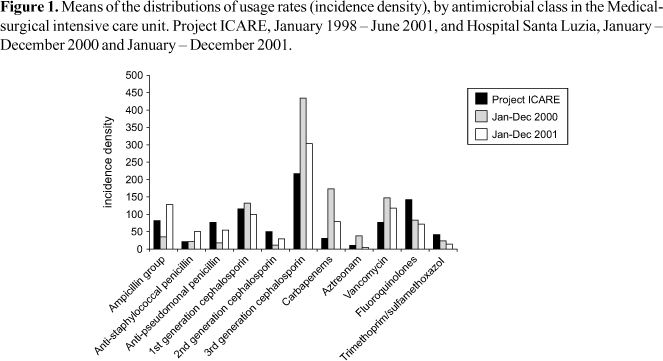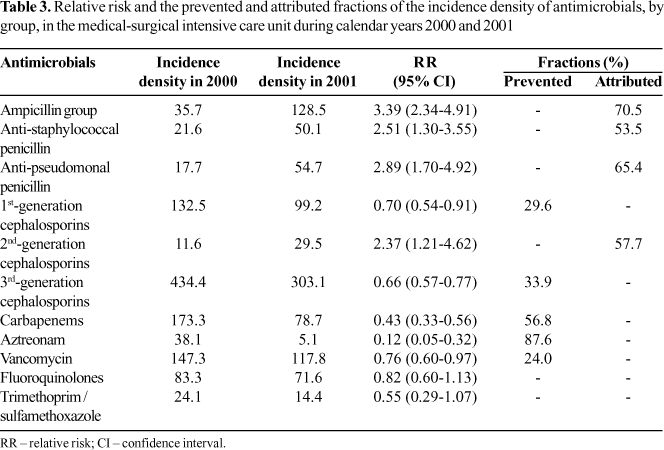There are various strategies to improve the effectiveness of antibiotics in hospitals. In general, the implementation of guidelines for appropriate antibiotic therapy and the participation of infectious disease (ID) physicians deserve considerable attention. This study was a prospective ecological time-series study that evaluates the effectiveness of the ID physician's opinion to rationalize and control the use of antibiotics in medical-surgical intensive care units (ICU), and the impact of their intervention on treatment expenditures. There was significant change in the pattern of use of antimicrobials, this pattern approximating that of a medical-surgical ICU that participates in the ICARE (Intensive Care Antimicrobial Resistance Epidemiology) Project. For example, there was a significant increase in the consumption of antimicrobials of the ampicillin group (Relative Risk [RR]=3.39; 95% CI: 2.34-4.91) and antipseudomonal penicillins (RR=2.89; 95% CI: 1.70-4.92). On the other hand, there was a significant reduction in the consumption of 3rd/4th generation cephalosporins (RR=0.66; 95% CI: 0.57-0.77) and carbapenems (RR=0.43; 95% CI: 0.33-0.56). On average, for every patient-day antibiotic expense was reduced 37.2% during calendar year 2001, when compared with 2000. The ID specialists' opinion and the adoption of guidelines for empirical antibiotic therapy of hospital-acquired pneumonia contributed to a reduction in the use of antimicrobials in medical-surgical ICU. However, further studies that have more control over confounding variables are needed to help determine the relevance of these discoveries.
Antibiotics; cost control; infection control; drug resistance; microbial




